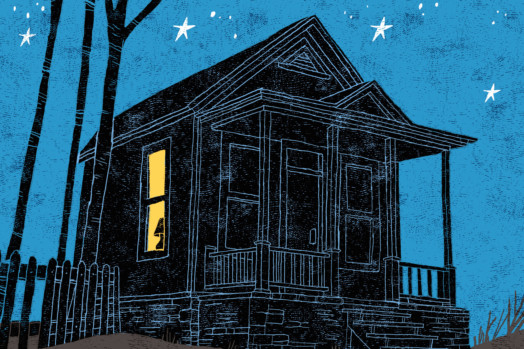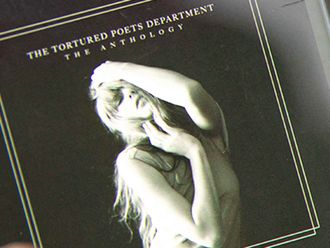
Our Souls at Night
By Kent Haruf, Knopf, 192 pages, $24
Writing about the everyday is a tough job. The extraordinary, the thrilling, the transgressive provide automatic glamour, but it takes a brave author to try to describe lives that are so commonplace as not even to be extraordinarily unhappy. And happiness — not sexual satisfaction, not reward of ambition, not ecstasy, not bliss, just day-to-day happiness — has practically vanished from fiction.
That may be because we distrust it, seeing it as sentimentality, confusing the real thing with the fake. Indeed, it’s not easy to write about. To ring true, description of even the humblest kind of fulfilment and contentment must be written in awareness of human inadequacy and cruelty and the possibility of illness, ruin, death. One false word can make it all incredible.
I don’t think there’s a false word in Kent Haruf’s final novel, “Our Souls at Night”. Nor, for all the colloquial ease and transparency of the prose and the apparent simplicity of the story, is there a glib word, or a predictable one.
Ordinarily the circumstances of the writing of a novel aren’t of much interest to me as a reader, but in this case, I am moved, even awed, to consider that the book was written while the author was dying. It is a report from the edge of darkness, made in the consciousness of responsibility. Haruf is bearing witness. Having gone farther than we have, he wants to tell us what matters there. His knowledge of his situation, and my knowledge of it as I read the book, made me appreciate the rare privilege of being with a person who is past the need to say anything but what needs to be said.
The voice is quiet. All the darkness is there, but we’re looking at the light. A lamp in a bedroom in a small town in Colorado.
Haruf’s novels are all set in this small town, Holt. The first two were fairly conventional. In the third, “Plainsong”, he found his own voice: profoundly American in its cadences, western American in its unexpected drollnesses and its calm, dry reticence. “Plainsong” and the novels that followed it are, like Willa Cather’s, eloquent of the lonesomeness of that vast country, the paradoxical constriction of people’s lives there, and the fragility.
Violence, never gloated over as a spectacle, is brief, inevitable and shocking. Children are always among the characters, drawn with extraordinary realism, compassion and intensity. The young people are restless, nervy, unguided. Older men do their jobs and keep their defences up. Women generally keep things running, though now and then one goes to pieces or suddenly runs off to Denver. But there is joy also, hard joy — the pleasure of risk, the pleasure of responsibility. Among these people tenderness is sheltered, cherished like a seedling tree as it slowly puts down deep roots to reach the water.
Holt is a long way from New York, farther perhaps than London or Prague. To many eastern Americans, western America means only cactus and Hollywood, a backdrop for westerns, not for literature. Haruf’s fidelity to the glamourless and untrendy Holt may have played into the parochiality of urban critics and kept his thoughtful, subtle, skilful work from the attention it deserves. Perhaps he didn’t mind. Not playing the hunger games of success, not undergoing the mechanical hoopla of PR, he could go on stubbornly being Kent Haruf, doing his job. He could go on writing about how hard it is to go on doing what you see as right when you aren’t sure how to do it, or even whether it is right — how hard we are on one another and ourselves, how hard most of us work, how much we long for and how little we mostly settle for.
This is all solid, satisfying novel-stuff, and in this last book something very rare has been added to it. Many novels have been about the pursuit of happiness, but this one is luminous with its actual presence.
“And then there was the day when Addie Moore made a call on Louis Waters.” So the story begins. Addie, a widow, has come to ask her widower neighbour if he’d consider coming over to her house sometimes to sleep with her. “What?” says Louis, naturally a bit taken aback. “How do you mean?”
And she says: “I mean we’re both alone. We’ve been by ourselves for too long. For years. I’m lonely. I think you might be too. I wonder if you would come and sleep in the night with me. And talk.”
So the light comes on in the bedroom on Cedar Street, in Holt, Colorado. And a happiness is very cautiously, courageously, tenderly achieved. Not, however, in the way we might expect, but on complex terms, involving quite a few of the other citizens of Holt. Perhaps happiness is less predictable than misery, since it partakes of freedom. Like freedom, also, it’s never secure; it can’t be forever. But it can be real, and in this beautiful novel, we can share it.
–Guardian News & Media Ltd
Ursula K. Le Guin’s “The Unreal & the Real: Selected Stories” is published by Gollancz.








